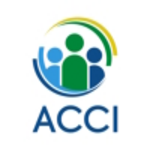
2024 Annual Conference
May 21–23, 2024
Hyatt Regency Milwaukee, Milwaukee, WI, USA
IMPORTANT NOTICE: The date, time, and room assignment of YOUR presentation is SUBJECT TO CHANGE.
Proposal authors can use this tool to see where they have been placed in the program agenda for an Oral or Poster Session.
Scroll down to search by the Submitter or Author Name, by Date/Time, or by Keywords.
Confirm your place in the schedule by following the instructionss that were emailed to you. Each presentation must have a separate paid registration. Contact the ACCI office immedicately by email at admin@consumerinterests.org to report any conflict, all corrections to the details of the presentation (including author names and the order they are listed as this is how it will be in the final program), or if you have any questions. Please be sure to reference the session title(s), date(s), and time(s) when you contact us.
G1c Weathering Setbacks: Natural Disasters, Residential Insurance Coverage, and Financial Health
Short Description
Natural disasters pose a risk to Americans' financial health. For instance, the costs of repairing or replacing property or belongings damaged or destroyed in a natural disaster can be difficult to manage. Although homeowner’s or renter’s insurance can offer some protection, not all Americans carry residential insurance. The existing literature has identified consumer preferences, awareness of risks, cost-related barriers, and accessibility of insurance products as potential factors influencing the uptake of residential insurance products, but there has been little investigation into how the risk of natural disaster-related losses influences residential insurance coverage. Leveraging data from the nationally-representative 2021 Financial Health Pulse survey data linked to state-level FEMA records of natural disaster-related losses, this study finds that Americans living in states with higher than average natural disaster losses less frequently carried renters or homeowners insurance. This reflects the disproportionate share of renters in high-loss states and the lower rates of insurance ownership among homeowners. We find evidence that the cost of insurance is a barrier for residents in high-loss states. We conclude with recommendations for policymakers and industry audiences and hypotheses for future research to test.
Type of presentation
Accepted Oral Presentation